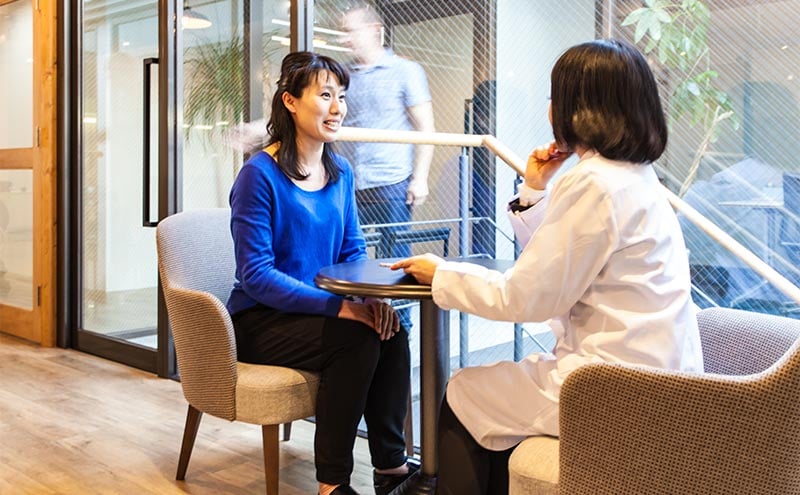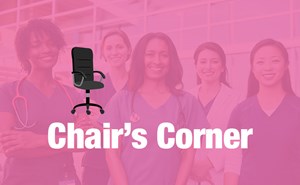
The Interview
It is the season for job hunting for the senior residents and fellow physicians. We may feel as though our senior or fellowship year has just started, but in fact we are quickly nearing the halfway point and job hunting has begun for most of us. As we search ourselves, our colleagues and mentors, and our significant others for information about where and how we’d like to work now that our post graduate training is coming to an end, we need to concern ourselves also with interview preparation. Interviews are far from a new experience. We have successfully conquered the medical school interview, “Why do you want to become a doctor?” We breezed past the residency interview, “Why Emergency Medicine? Why this program?” We practiced our responses and knew the upcoming questions. But, this is for real. This is for a full-time, no excuses, no second chances, actual EM physician job. This is your stepping stone for your career in Emergency Medicine. Is this different? What about the pressures and realizations that you are searching for your dream job, the job you have been working so hard for over the past seven-plus years? Thankfully, that does not change much. We are experienced at interviews, our upbringing in medicine and Emergency Medicine has given us multiple interviews throughout our advancement in education and during each and every day we interview (and get interviewed by) our patients. The rules and expectations remain the same. Take a deep breath and enjoy these reminders modified from Dr. Azeem Ahmed, Executive Vice Chair, Director of Emergency Medicine at University of Iowa Hospitals and Clinics. Maybe even print them out and review them throughout your job searching. Happy hunting!
Scheduling:
- Be professional in all communications with all members of staff. The interview starts at first contact.
- Be flexible when scheduling dates. The group is likely working with multiple different schedules, provide them plenty of options.
- Be timely in your responses via email or phone. Show professionalism, interest and eagerness, but avoid going “over the top” by replying too soon or using comfortable colloquialisms.
- Confirm who you will be interviewing with, a recruiter, the EM administration, an EM physician. This will allow you to better prepare for interview day.
- Ensure they have your most up to date CV and information. This will allow them to prepare for your interview day.
Interview Prepping:
- Research the group. Use the internet, social media and your professional network to increase your familiarity with the group. If they release their annual report online, it may be very
- Do some heavy introspection. Why you want to work with this group? What do you like about their health care system? What are your personal and professional goals? What unique skillset can you bring to better their group? What are your strengths, your weaknesses? What are your personal and professional interests? Practice your responses, yes, in the mirror. Be genuine and thoughtful but avoid sounding rehearsed. Please don’t ever say, “My strengths are my ”
- Review your CV, know it from top to bottom, left to right. Practice speaking about your training, your unique CV components, and research projects or presentations. Be comfortable and versed in your qualities presented on your CV.
- Practice. Practice. Especially if there is an online video interview. Take time to practice looking into the camera (not watching the screen) and chatting with friends and family so you are familiar with the platform.
Interview Dinner:
- Be punctual. Arrive to everything 10-15 minutes early, this allows some time for traffic and navigation of a new city. Punctuality is also courteous, respectful and overall professional.
- Be cautious with alcohol. Have a glass of wine or a single beer, but avoid too much of the social lubricant as a functioning filter during an interview dinner is of utmost value.
- Order a clean and easy to eat entree. Avoid pasta or messy dishes that may spill or be difficult to consume. It is better to go a little hungry than make a mess or tie a napkin around your
- Know your way around a dinner table. The skills of dining etiquette can be reviewed online prior to your dinner. Confidence with dining will spread confidence into other areas of your interview and reflect on you in a positive manner.
- Listen first, speak second. The interview has started, and the dinner is a way for the group to socialize with you and get to know you in a more casual environment. Weigh your words before speaking and truly listen to their comments and questions. As they are getting to know you, you are also getting to know them.
Interview Day:
- Review the agenda and know what is ahead of you. Who are you interviewing with and what time of day?
- Be punctual. Similar to the dinner, arrival 10-15 minutes early shows a great deal of interest, respect and accountability. Arrival late will be just as impactful in a negative fashion. There is no excuse for being late.
- Be dressed appropriately. A business suit, pants or skirt, will look professional and should be comfortable by now as we all wore one during medical school and residency interviews. An interview day is not the time to make a fashion statement, let your amazing CV and your glowing confidence stand out far more than your clothing.
- Treat each person you interview with and interact with on interview day with respect. Be polite and respectful overall, thank each person for their time and effort.
- Listen first, speak second. Similar to the interview dinner, listen to the questions and pause before giving a thoughtful response. Avoid slang or inappropriate language during your interview. Be professional at all times.
- Speak favorably of other programs, hospitals, health care systems, etc. Demonstrate utmost level of professionalism when speaking, everything you say and reveal reflects upon you and can and will be used for/against you.
- Avoid controversial topics during your interview. You want to be remembered for your amazing CV and glowing confidence rather than the controversy. Keep your filter on high alert! Especially important later during interview season when we can get tired and a little careless.
- Have a salary range in mind but be cautious bringing it up yourself. Salary is a part of the job, but you are interviewing for the job. Focus on the job during the interview, there will be plenty of time to talk about money later during the hiring process.
After the Interview:
- Thank everyone for their time and hospitality. A lot of effort goes into conducting an interview.
- Sign any expense vouchers prior to leaving to tie up loose ends and demonstrate professionalism and accountability.
- Politely ask about the timeline of events continuing the hiring process. This allows you and the group to prepare for the upcoming steps.
- Follow-up with an email or phone call 1-2 days after your interview. This can act as a way to say, “thank you” and continue the hiring process.
- Conduct a self-reflection of your performance and their performance during your interview dinner and day. What did you do well? What did they do well? Are you interesting in a position and continuing the hiring process?
Alecia Gende, DO
AAWEP Senior Resident Representative/Newsletter Editor
Primary Care Sports Medicine Fellow
University of Iowa Sports Medicine



